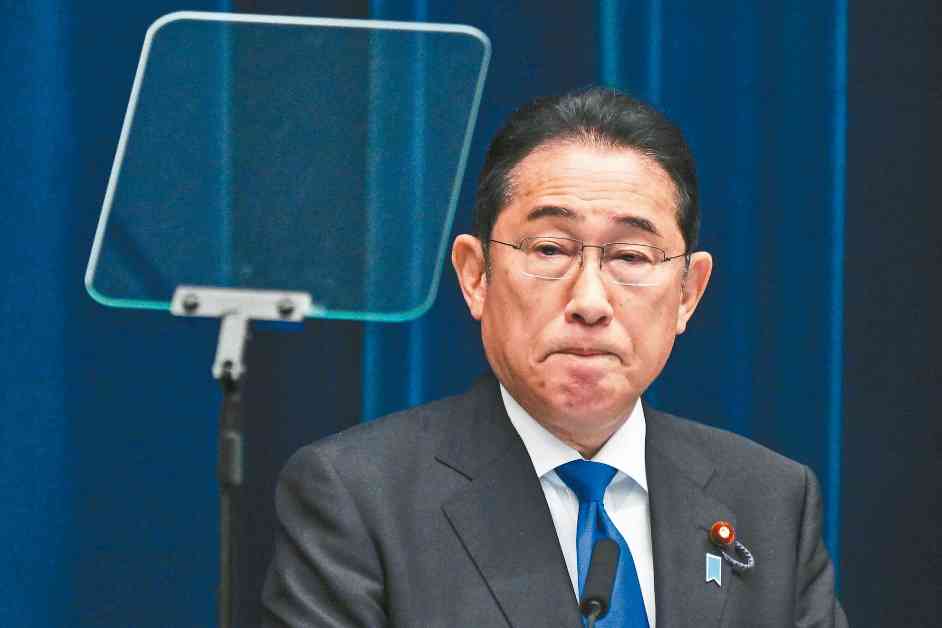**Understanding the Political Donation Controversy: Fumio Kishida Steps Down from Party Leadership Election, New Prime Minister to Be Elected**
Japanese Prime Minister Fumio Kishida held a press conference on the 14th in Tokyo, announcing that he would not participate in the September Liberal Democratic Party (LDP) leadership election. Kishida stated, “The first and most direct step in the change of the LDP is my resignation,” indicating that he would step down as Prime Minister once a new party leader is elected. As LDP members in Taiwan visit, Representative Shigeru Ishiba leads in multiple polls, making him a popular candidate for the next Prime Minister. Ishiba expressed his willingness to run if supported by members of parliament.
During the press conference, Kishida emphasized the importance of transparent and open elections as well as free and active debates to demonstrate to the people that the LDP is changing. He explained that his decision not to participate in the September election is a clear indication of the party’s intention to transform.
Reflecting on his achievements in office, Kishida highlighted efforts to raise wages, promote investment to end Japan’s thirty-year deflationary struggle, and significant accomplishments in energy policy, defense, and foreign affairs. He expressed pride in these accomplishments but acknowledged the public’s distrust of politics due to issues such as the Unified Church, LDP factions, and political donation scandals. Kishida took responsibility for addressing and preventing such incidents, stating, “Politics can only thrive when the people trust it. I have made this significant decision in the hope of advancing political reform for the benefit of the people.”
A senior member of the Kishida faction within the LDP, speaking to NHK, lamented Kishida’s decision not to seek re-election due to political donation issues despite his positive record in foreign policy, defense, and domestic politics. The member expressed sadness for Kishida’s situation.
At the age of 67, Fumio Kishida took office as LDP President in October 2021, with his three-year term set to expire this year. Hindered by internal political donation scandals and low cabinet approval ratings hovering around 20%, public opinion has favored a change in LDP leadership, leading to increased pressure within the party and Kishida’s decision to forgo re-election.
The ruling LDP will hold the leadership election between September 20th and 29th, with the exact schedule to be determined by the party’s election management committee on the 20th. With Kishida not running for re-election, an extraordinary session of the Diet is expected to be convened after the LDP leadership election to elect the new party leader as the next Prime Minister.
While no official candidates have declared their intention to run in the LDP leadership election, Japanese media have speculated on potential candidates, including several ministers such as Taro Kono, LDP Secretary-General Toshihiro Nikai, and former Secretary-General Shigeru Ishiba.
Shigeru Ishiba, leading the “Consideration Group for Japan’s Security,” is currently visiting Taiwan with the group. During a media interview, Ishiba emphasized the need for the support of twenty parliamentary members to run in the LDP leadership election. He expressed readiness to stand for election if there are willing collaborators or endorsements.
At the age of 67, Ishiba has left and returned to the LDP, having run for LDP President four times, all unsuccessful. In two of those attempts, he was defeated by the late former Prime Minister Shinzo Abe. A fifth attempt in the upcoming election would mark his fifth bid for the LDP presidency.












